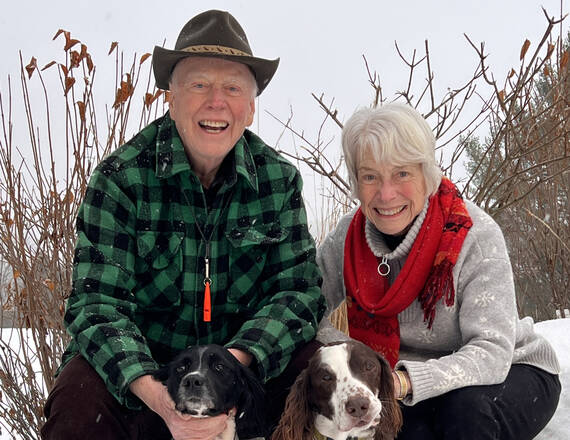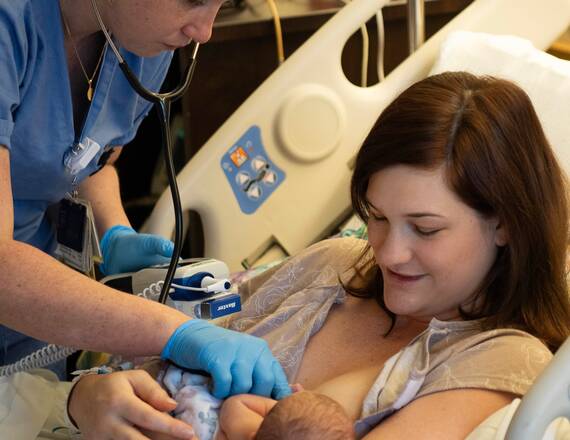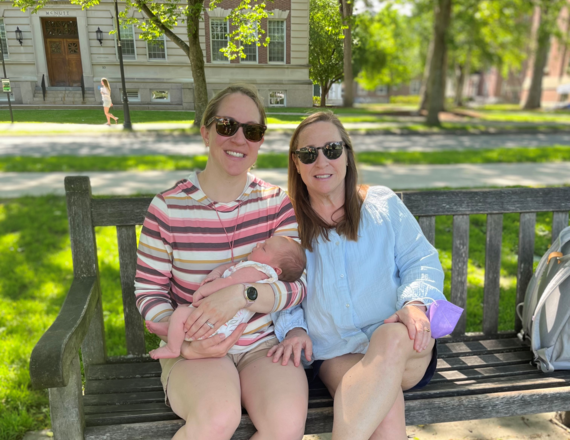Shock After Shock
How One Upper Valley Family’s Worst Nightmare Turned into a Lifeline of Care
“What was that?”
Wendy Wozniak and her husband heard the noise coming from their son’s bedroom—as if something heavy had fallen—then silence. JJ Wozniak went upstairs, where he found their 21-year-old son Jack on the floor, seizing and unresponsive.

Despite being a critical care nurse, Wendy says she flew into “a weird panic mode—an out-of-body experience.”
It was shocking. Jack, healthy and athletic, had no history of medical issues. Now, he was unconscious and convulsing without any why or wherefore.
Paramedics arrived promptly. One, who Wendy knew from her own work at the VA, did an EKG on Jack in the living room, after which the family rushed to the Emergency Department at Dartmouth Hitchcock Medical Center (DHMC). Doctors evaluated Jack and ran several tests, but the results were inconclusive. Jack was young and otherwise healthy, so the family left without a definitive diagnosis.
The next day, the paramedic who had initially treated Jack called. Equally puzzled, he’d taken a closer look at the EKG and told Wendy he suspected Jack might have Brugada syndrome, an extremely rare genetic heart condition that can trigger sudden cardiac arrest without warning. Roughly 1 in 2,000 to 5,000 people worldwide have Brugada syndrome, with an estimated 0.05% to 0.1% prevalence in Jack’s age group.
“But I can’t diagnose,” the paramedic said. So Wendy tapped her medical network, which included Mark Greenberg, MD, the retired founder of DHMC’s cardiac electrophysiology program. The connection led her to Evan Grove, MD, a cardiologist at DHMC, who made sure Jack was seen the next day.
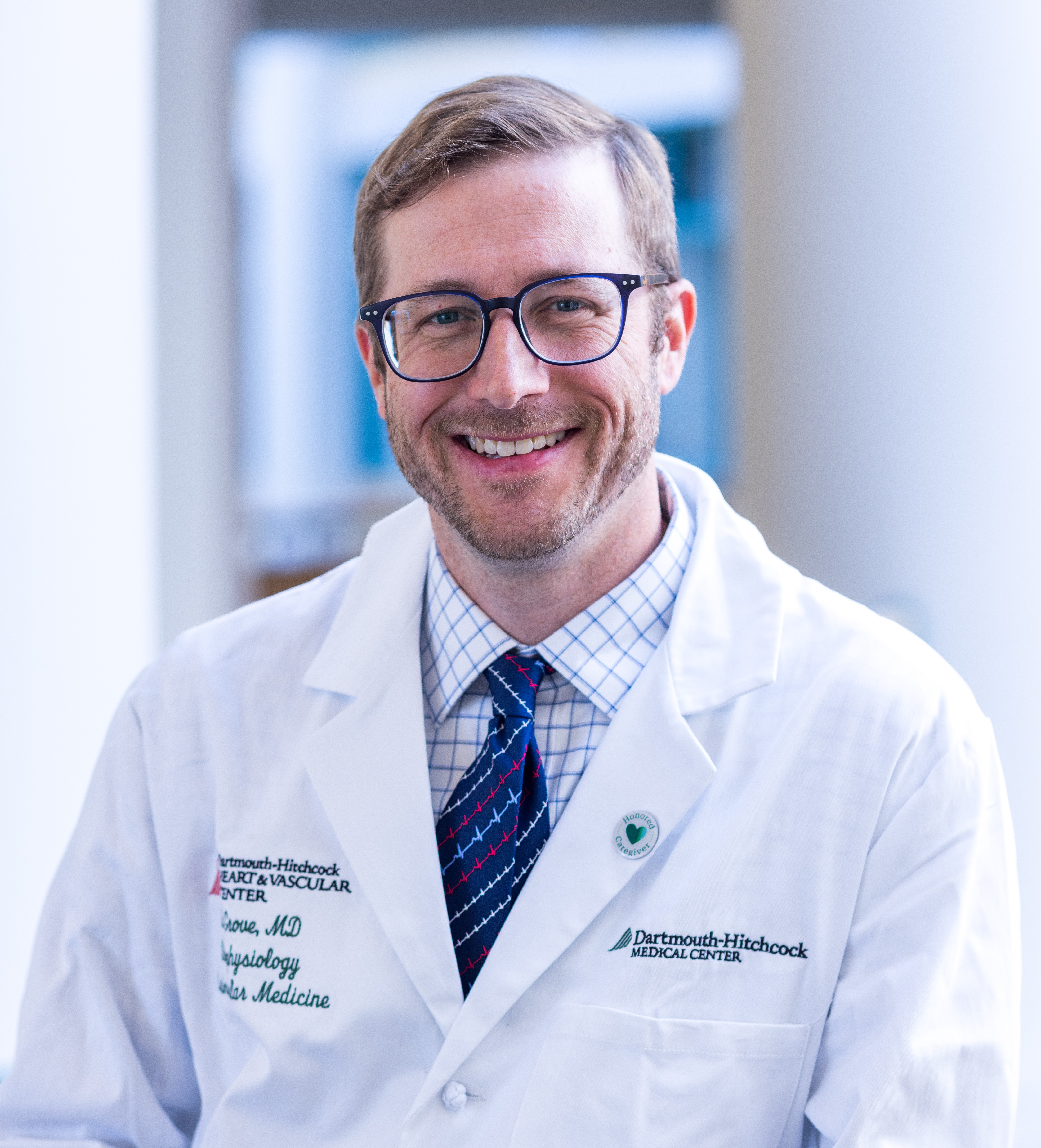
Within 24 hours, Dr. Grove and his colleague Jason Trenkle, MPAS, PA-C, confirmed the paramedic’s hunch: Jack did have Brugada syndrome.
“Brugada syndrome is not well-known and very unpredictable,” explains Dr. Grove. “A person can have a normal EKG for years and then suddenly experience a life-threatening rhythm. Fortunately, in Jack’s case, a drug test helped confirm the diagnosis.”
Dealing with Diagnosis
To prevent potentially fatal arrhythmias that were likely to arise due to Brugada syndrome, Jack needed medication and surgery to implant a defibrillator.
“Being just out of college, the prospect of heart surgery was intimidating,” Jack says. “But Dr. Grove made it a lot less scary. He really helped me understand my condition and feel comfortable with the diagnosis and treatment.”
In August 2021, Jack underwent surgery to have the defibrillator placed. But just months later, in January 2022, his father found him collapsed on the floor—again. This time, Jack’s newly implanted device detected the dangerous rhythm and shocked Jack’s heart back to normal.
“If he hadn’t had the defibrillator, there’s a real chance he would have died,” says Dr. Grove. “That made us feel good. We knew it saved him.”
After another visit to the ED, Jack was swiftly admitted and stabilized. The Wozniak family was grateful not just for the advanced care, but that it was available just miles from their home in White River Junction, Vermont.
“Everything Jack needed was right here,” Wendy says. “And thank goodness, because time really mattered.”
Today, DHMC’s Heart and Vascular Center is working to expand access for families like the Wozniaks across the region. The new Patient Pavillion at DHMC, opened in 2023, added 64 new private rooms dedicated to heart and vascular care. As more floors in the Pavillion open in the coming months, more patients like Jack can receive life-saving care, close to home and without delay.
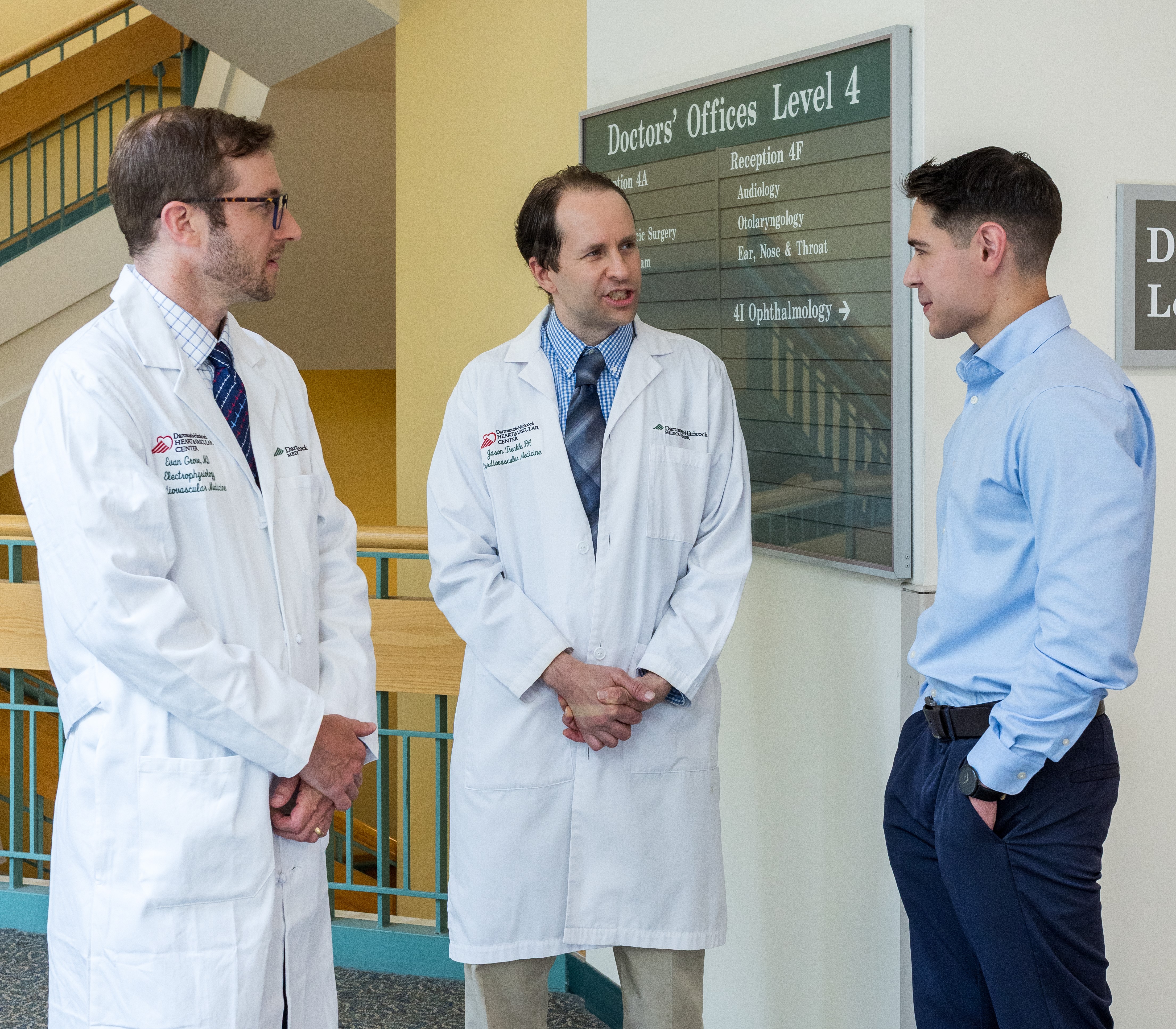
A Regular Rhythm
Throughout the following months, Dr. Grove remained accessible and attentive. When Jack received another shock while working out at the gym, Wendy reached out, and Dr. Grove quickly reassured her, saying, “You can always call me.” He also referred Jack to a specialist to explore additional treatment options, like cardiac ablation.
Today, Jack is thriving. He works full time, exercises regularly, and recently completed a 5K race. He still takes medication three times a day and checks in with Dr. Grove every six months.
“Right now, I don’t even think about the defibrillator in my chest,” Jack says.
A Message of Gratitude
Grateful for the care they received, and that such high-quality cardiac expertise exists right in the Upper Valley, the Wozniak family honored Dr. Grove and physician assistant Jason Trenkle earlier this year, during Dartmouth Health’s annual Honor a Caregiver campaign.
“Your dedication and expertise contributed [to] saving his life,” Wendy wrote in her tribute to Dr. Grove. “But what I appreciate most is how you always took the time to explain things clearly and answer all our questions, no matter how silly they seemed. You made a scary situation so much more manageable.”
She also thanked Trenkle for his warmth and clarity. “We never feel rushed during appointments,” she shared. “Thank you for always being so friendly and spending the time with us that is needed.”
The family’s story is a powerful reminder of how expert, compassionate care can make all the difference—especially in moments of crisis.
“We’re so lucky to have Dartmouth in our backyard,” Wendy says. “Jack’s condition isn’t going away, but we’ve found a team we trust. And we didn’t have to go far to find them.”
To learn more about the Honor a Caregiver program, please contact Cate Meno at Cate.Meno@hitchcock.org or 603-646-5794. You can also leave your own tribute for a caregiver through our annual campaign here.
